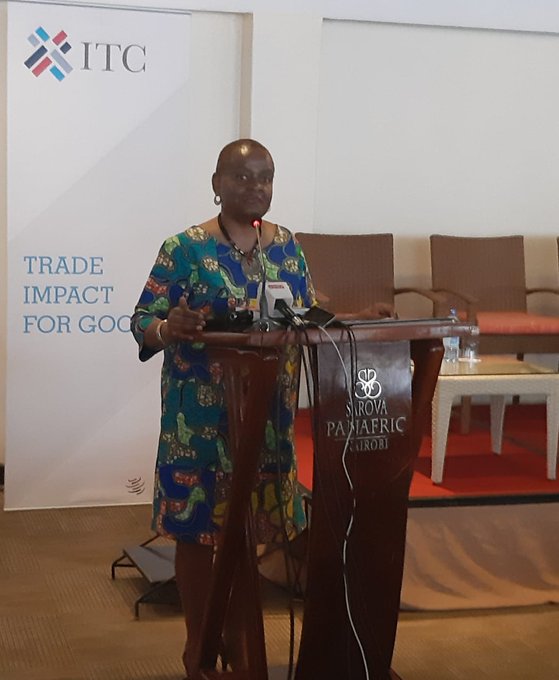Raising the competitiveness of Kenya’s small and medium-sized enterprises (SMEs) will underpin the country’s effort in realizing the goals of Vision 2030, the country’s long-term development blueprint. Targeted solutions are needed to help Kenya’s SMEs capitalize on current growth, according to a new report that assesses the competitiveness of Kenyan SMEs.
Unveiled in Nairobi today, ‘Promoting SME competitiveness in Kenya: Targeted solutions for inclusive growth’ is the result of a collaboration between the Ministry of Industry, Trade and Cooperatives (MITC), the Kenya National Chamber of Commerce and Industry (KNCCI) and the International Trade Centre (ITC).
The report finds that the needs and strengths of SMEs differ across sectors and suggests that policies be crafted specifically for each individual sector rather than using a ‘one-size-fits-all approach’. For example, companies in the agri-food sector are particularly concerned about the cost of logistics services, indicating that interventions to cut costs and improve the efficiency of logistics services would deliver dividends for agricultural exports.
Despite a high level of innovation in the manufacturing sector, ‘Promoting SME competitiveness in Kenya’ suggests that the sector would benefit from stronger support on intellectual property protection. Meanwhile, it finds that companies in the services sector rely much less on business support institutions than companies from other sectors. A concerted effort by trade and investment support institutions to step up outreach and support to companies from the services sector would help boost the competitiveness of Kenya’s services exports.
The report builds on data gathered from almost 900 Kenyan firms using the ITC SME Competitiveness Survey, which assesses the strengths and weaknesses of companies and their business ecosystem, as well as their needs. Based on collected data, it provides empirical evidence establishing the need to put in place targeted competitiveness policy and programmes to boost exports by Kenyan SMEs.
Inclusive economic growth
The report identifies opportunities to make Kenya’s economic growth more inclusive by strengthening the competitiveness of its SMEs. While Kenyan companies are on average internationally competitive, some types of firms are lagging behind.
Survey results indicate that companies owned and managed by women find it harder to obtain finance than those led by men. Women-led companies are in greater need of loans than companies led by men, but are less likely to have applied for and received credit. The same is true for youth-led firms. In many instances, women-led firms did not even bother applying and they were three times more likely than men-led firms to cite interest rates as a barrier to seek finance.
Furthermore, enterprises led by women and youth trail behind in acquiring certification to standards required by many markets. ‘Promoting SME competitiveness in Kenya’ suggests that policy solutions to help companies led by women and youth access financing and get certified would have a significant impact on boosting inclusive growth in Kenya.
The report also finds significant differences between Kenyan counties. Counties with more competitive enterprises usually have higher gross output, indicating that focused resources to boost SME competitiveness in remote regions could boost their contribution to the economy. Competitiveness scores were highest in Nairobi, Kisumu, Machakos and Mombasa and lowest in Narok, Tana River, Kwale and Lamu. Agri-food firms in the south and west, in particular, will need better logistics services and transport infrastructure to deliver their products on time.






